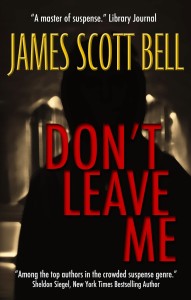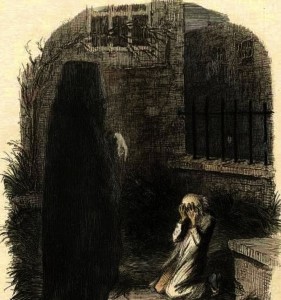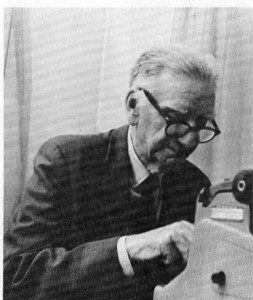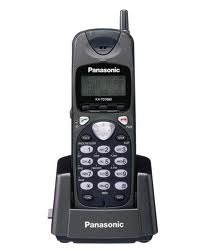James Scott Bell
@jamesscottbell
The Phantom slowly, gravely, silently, approached. When it came near him, Ebenezer Scribe bent down upon his knee; for in the very air through which this Spirit moved it seemed to scatter gloom and mystery.
“I am in the presence of the Ghost of Writing Yet To Come?” said Scribe.
The Spirit answered not, but pointed onward with its hand.
“You are about to show me shadows of the things that have not happened, but will happen in the time before us,” Scribe pursued. “Is that so, Spirit?”
The upper portion of the garment was contracted for an instant in its folds, as if the Spirit had inclined its head. That was the only answer he received.
Scribe feared the silent shape so much that his legs trembled beneath him, and he found that he could hardly stand when he prepared to follow it. The Spirit paused a moment, as observing his condition, and giving him time to recover. It was something out of a Stephen King novel. Scribe, in his youth, had once wished to be “another Stephen King.”
“Ghost of the Future!” Scribe exclaimed, “I fear you more than any spectre I have seen. But as I know your purpose is to do me good, and as I hope to live to be another writer from what I was, I am prepared to bear you company. Will you not speak to me?”
It gave him no reply. The hand was pointed straight before them. The Spirit guided him onward.
Presently, it stopped beside one little knot of writers at a local Starbucks. Observing that the hand was pointed to them, Scribe advanced to listen to their talk.
“No,” said a great fat man with a monstrous chin, “I don’t know much about it, either way. I only know he’s dead.”
“When did he die?” inquired another.
“Last night, I believe.”
“Why, what was the matter with him?” asked a third, breaking off a vast chunk of zucchini muffin and stuffing his cheek.
“God knows,” said the first, with a yawn.
“How many books did he actually write?” asked a red-faced gentleman with a pendulous excrescence on the end of his nose, that shook like the gills of a turkey-cock.
“Not many,” said the man with the large chin, yawning again. “He quit writing some time ago. Didn’t think he was good enough. At least, not as good as we!”
This pleasantry was received with a general laugh.
“It’s likely to be a very cheap funeral,” said the same speaker; “for he did not make any money self-publishing.”
“Because he did not think of it as a business,” said the red-faced man. “Nor did he keep producing new work.”
“Which is what we should be doing,” said the one with the muffin.
“Oh shut up,” said the large-chinned man.
The Spirit beckoned Scribe to follow, and soon they were in an obscure part of the town, where Scribe had never penetrated before, although he recognized its situation, and its bad repute.
Far in this den of infamous resort, there was a low-browed, beetling shop. Sitting in among the wares he dealt in, by a charcoal stove made of old bricks, was a grey-haired rascal, nearly seventy years of age; who had screened himself from the cold air without, by a frousy curtaining of miscellaneous tatters, hung upon a line; and smoked his pipe in all the luxury of calm retirement.
Scribe and the Phantom came into the presence of this man, just as a woman with a heavy bundle slunk into the shop. She opened the bundle before him and exposed three books.
“Here it is, Joe,” the woman said, laughing. “All the writing books he owned, poor soul.”
The old man removed his pipe and took each book up, one at a time. “Why, none of these books is highlighted,” he said with contempt.
“I was his housekeeper, I was,” the woman said, “and I never saw him study a single book. He always said writing couldn’t be learned, you know, and these books was gifts to ‘im, but I don’t see as how they did ‘im any good that way.”
“None at all,” Joe agreed. “He who ignores discipline comes to poverty and shame, the Good Book says, and if he fancied himself a writer he shouldn’t’ve listened to the likes of the naysayers.”
“He didn’t even have a word quota, more’s the pity.”
“And would I be in my exalted position if I did not practice industry daily?” Joe said. “Here, a sixpence for the lot and not a farthing more. I’ll sell ‘em to a young writer who actually has the moxie to write and never quit.”
“Spirit!” Scribe said. “This is a fearful place. Let us go!”
The Ghost pointed with an unmoved finger toward the books.
“Yes, I know I must study the craft,” Scribe returned, “and I know I must write to a quota, and I would do it if I could. But I have not the power, Spirit. I have not the power!”
The Spirit tweaked Scribe on the head with a bony finger. Thwack!
“Ouch!” Scribe said. “Okay! I get it! Hear me! I am not the writer I was. Why show me this, if I am past all hope!”
For the first time the hand appeared to shake.
“Good Spirit,” he pursued, as down upon the ground he fell before it: “Your nature intercedes for me, and pities me. Assure me that I yet may change these shadows you have shown me, by a disciplined writing life!”
The kind hand now made the Okay sign.
“I will honor writing in my heart, and try to keep at it all the year! I will develop ideas and write novels and actually finish them! I will not shut out the lessons you teach!”
In his agony, he caught the spectral hand. It sought to free itself, but he was strong in his entreaty, and detained it. The Spirit, stronger yet, repulsed him.
Holding up his hands in a last prayer to have his fate reversed, he saw an alteration in the Phantom’s hood and dress. It shrunk, collapsed, and dwindled down into a bedpost.
A bedpost Scribe was clutching with his hands.
He was back! In his own bed!
Running to the window, he opened it, and put out his head. “What’s to-day!” cried Scribe, calling downward to a boy.
“Eh?” returned the boy.
“What’s to-day, my fine fellow?” said Scribe.
“To-day!” replied the boy. “Why, it’s the start of NaNoWriMo!”
“NaNoWriMo!” said Scribe to himself. “Then I haven’t missed it!” And then to the boy: “Hallo, my fine fellow, do you know the grocers, in the next street but one, at the corner?”
“I should hope I did,” replied the lad.
“An intelligent boy!” said Scribe. “A remarkable boy! Run and fetch me as many packages of ground French Roast as this’ll buy!” He threw two twenties out the window to the boy. “Come back with the coffee in ten minutes and I’ll give you a shilling!”
“What’s a shilling?”
“Come back in less than ten minutes and I’ll give you half-a-crown!”
“Whatever,” said the lad, and ran away.
Scribe ran to his computer. He turned it on and opened a blank Word document and wrote “Chapter One” and skipped down two spaces. “In all the time I have left on this earth,” he said to himself, “I am going to write. I am never going to stop. I’m going to set a word goal for every week, and I’m going to study those books I have, and buy more! I am determined to get better with each project! And I’m going to develop more than one idea at a time! For I am a writer! That’s what the Spirits wanted me to know! And I can only be stopped if I give up!”
Scribe was better than his word. He did it all, and infinitely more. He completed his NaNoWriMo novel, self-edited it, got feedback from beta readers, edited it again, and had it edited by a professional. He became as disciplined a writer as the old city knew, or any other old city, town, or borough, in the good old world. Some people laughed to see the alteration in him, but he let them laugh, and little heeded them. His own heart laughed, for he was a true writer now, and that was quite enough for him. For he knew that the writing game favors those who produce and risk and sometime fail, but always come back bravely to the page to risk and write again.
May that be truly said of us, and all of us! And so, God bless us, every one!















